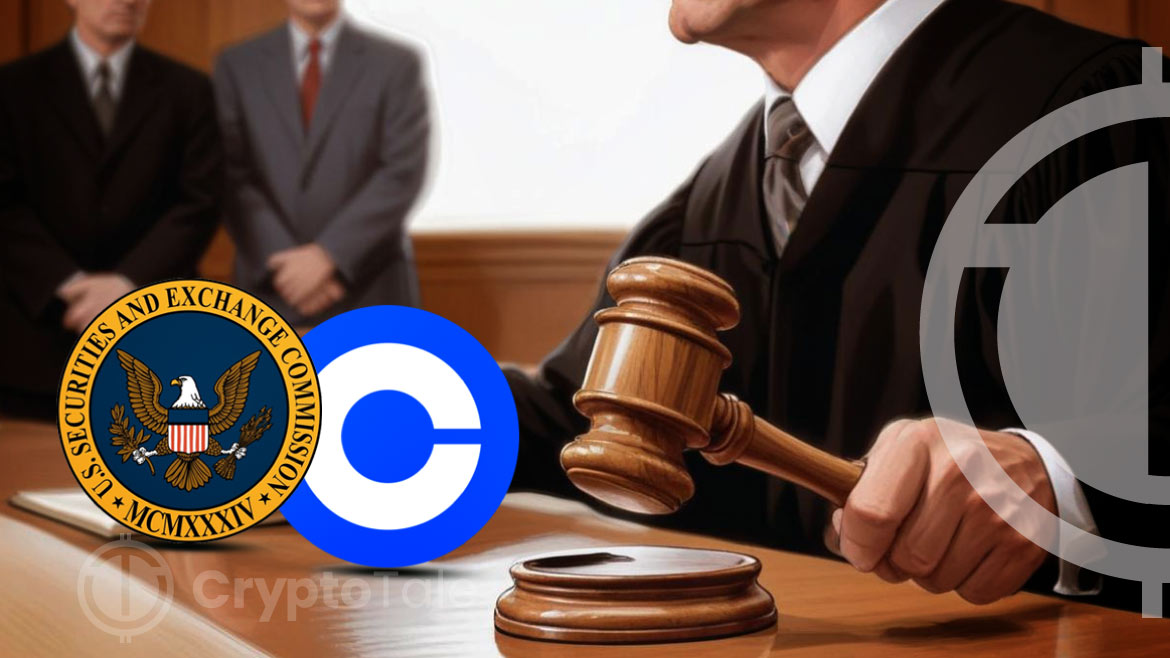- NY Judge allows partial document disclosure to Coinbase but rejects Gensler’s subpoena.
- Coinbase reduces demand for Gensler’s private communications based on SEC assurances.
- Judge Failla orders extensive SEC document production regarding the Howey Test analysis.
The New York Court has partially granted a motion by cryptocurrency exchange Coinbase against the U.S. Securities and Exchange Commission (SEC). The court’s decision allows Coinbase to access specific documents but denies the request to subpoena SEC Chair Gary Gensler.
Court Grants Partial Document Access
During a telephonic conference on September 5, 2024, U.S. District Judge Katherine Polk Failla ruled out Coinbase’s July motion. The ruling compels the SEC to release documents central to Coinbase’s ongoing litigation. However, the court dismissed Coinbase’s effort to subpoena Chair Gensler.
Coinbase initiated legal action against the SEC last year, alleging the agency improperly sued them for operating without proper registration. The lawsuit is in the discovery phase, where each party gathers evidence from the other.
Coinbase requested documents regarding the tokens involved in the SEC’s complaint and information about how the SEC viewed Coinbase’s status as a public company in April 2021.
They also requested documents on statements Gensler made during his tenure, both in his personal and professional zones.
SEC Challenges Coinbase’s Discovery Requests as ‘Excessive’Subpoena Request For Gensler Denied
Judge Failla has limited the scope of the subpoena against Gensler. Initially, Coinbase had served a subpoena in June demanding the Chair provide documents related to his private emails from 2017 to the present. This request was later narrowed down to his period at the helm of the SEC starting in 2021. Following discussions, Coinbase withdrew this request based on assurances from SEC counsel that Gensler did not use personal communication channels for SEC business.
The court also narrowed the types of documents the SEC must provide. It focused on the Howey Test, a method used to determine if a transaction qualifies as an investment contract. Coinbase had argued for the SEC to conduct a preliminary search of non-enforcement files to challenge the agency’s claims of undue burden. The court required the SEC to expand its search beyond the five staff members initially proposed but did not extend this to current or past commissioners.
Coinbase Gains Key SEC Documents
Additionally, Judge Failla allowed the SEC to keep certain internal documents sealed, especially those with external attachments. This decision follows her granting the SEC’s motion to “permanently file under seal” certain redactions.
Coinbase’s Chief Legal Officer Paul Grewal commented on the court’s decision. He emphasized that despite withdrawing one subpoena request, the order significantly aids Coinbase’s defense by granting access to crucial SEC documents related to their Howey analysis.
Grewal shared his satisfaction with the court’s ruling on social media, noting the importance of the documents the court has ordered the SEC to produce. He expressed gratitude for the Judge and indicated plans to share the court transcript shortly.
The court’s decision marks a pivotal moment in the legal battle between Coinbase and the SEC. It provides the exchange with essential documentation for its defense while setting boundaries on the scope of information it can seek.






